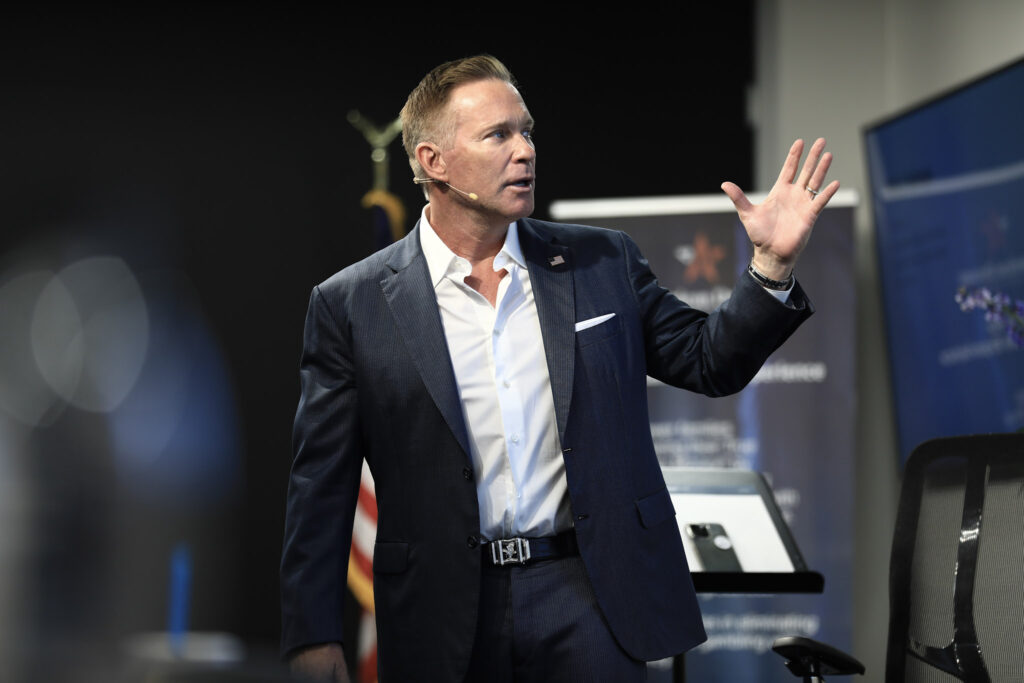
The financial industry in the United States is ever-evolving, influenced by global events, technological advancements, regulatory changes, and economic shifts. As we navigate through the complexities of today’s financial landscape, it can be crucial to understand the challenges and opportunities that lie ahead.
Inflationary Pressures: Inflation has emerged as a significant concern, impacting both consumers and businesses alike. Rising prices for goods and services erode purchasing power and can lead to adjustments in interest rates by central banks. The Federal Reserve’s monetary policy decisions are closely watched as they seek to balance the dual mandate of price stability and maximum employment.
Businesses should navigate inflationary pressures by managing costs, adjusting pricing strategies, and exploring innovative solutions to maintain competitiveness. People’s ability to save for long-term financial goals has been impacted possibly creating a new crisis down the road for retirement.
Generative Artificial Intelligence: What does the future of financial intelligence with the integration of generative artificial intelligence (AI) look like? As the financial industry continues to move forward with technological advancements, generative AI stands out as a potentially transformative tool for data analysis, risk management, and decision-making processes. By leveraging advanced machine learning algorithms, generative AI systems can have the capability to generate synthetic data, simulate complex financial scenarios, and uncover hidden patterns within vast datasets. For financial professionals, generative AI can explore innovative solutions, such as greater efficiency, transparency, and value across the financial ecosystem. However, as this technology continues to evolve, there should be a level of caution with the advice it provides. Make sure you have checks and balances in place to verify the information.
Regulatory Environment: Regulatory compliance remains a top priority for financial institutions, given the complex and evolving regulatory landscape. Regulatory authorities are implementing measures to enhance transparency, strengthen cybersecurity, and promote financial stability. In addition to compliance, people need to be vigilant investors. Vetting the validity and efficacy of alternative investing programs is your first defense against fraud. To help protect yourself from fraud, think critically, and verify before you trust.
Investor Education and Empowerment: In an era of rapid change and uncertainty, investor education is more important than ever. Individuals need access to reliable information, tools, and resources to make informed financial decisions and help achieve their long-term goals. Financial literacy initiatives and educational programs can play a vital role in empowering investors to navigate the complexities of the financial markets and create long-term wealth. Most importantly, to stay prudent and disciplined for a lifetime, get an advisor coach. Someone who will work hand in hand with you and your family to help you achieve your goals and your American Dream.
While these challenges can pose significant hurdles, they also present opportunities for innovation, collaboration, and growth. The best line of defense? Arm yourself with knowledge. Attend the American Dream Experience to get the training and development you need which can help give you confidence in you and your family’s investing strategy.
The American Dream Experience is a free breakthrough financial training where you can discover how to leverage fundamental principles of long-term wealth creation and how to tell the difference between Nobel Prize-winning investment strategies such as Efficient Market Hypothesis vs fraudulent or harmful advice.
DISCLOSURES:
Matson Money, Inc. “Matson” is a federally registered investment advisor with the Securities Exchange Commission (SEC) and has been in business since 1991. In Canada, Matson is registered as a portfolio manager in Ontario, Alberta, and British Columbia. Registration with the SEC and the Canadian securities regulatory authorities does not imply their approval or endorsement of any services provided by Matson.
This content is not to be considered investment advice and is not to be relied upon as the basis for entering into any transaction or advisory relationship or making any investment decision.
This content includes the opinions, beliefs, or viewpoints of Matson Money. All of Matson Money’s advisory services are marketed almost exclusively by either Solicitors or Co-Advisors. Both Co-Advisors and Solicitors are independent contractors, not employees or agents of Matson.
Other financial organizations may analyze investments and take a different approach to investing than that of Matson Money.
All investing involves risks and costs. All investments involve the risk of loss, including the loss of principal. These risks may not always be mitigated through long-term investing or diversification. No investment strategy (including asset allocation and diversification strategies) can ensure peace of mind, guarantee profit, or protect against loss.
PAST PERFORMANCE IS NO GUARANTEE OF FUTURE RESULTS
NOBEL PRIZE WINNING ACADEMIC:
The Nobel Memorial Prize in Economic Sciences, commonly referred to as the Nobel Prize in Economics, is an award for outstanding contributions to the field of economics, and generally regarded as the most prestigious award for that field.
Markowitz, Harry. “Portfolio Selection.” Journal of Finance. 1952.
Harry Max Markowitz is an American economist, and a recipient of the 1989 John von Neumann Theory Prize and the 1990 Nobel Memorial Prize in Economic Sciences. Markowitz is a professor of finance at the Rady School of Management at the University of California, San Diego.
Efficient Market Hypothesis, first explained by Dr. Eugene Fama in his 1965 doctoral thesis.
Eugene F. Fama, “Random Walks in Stock Market Prices,” Financial Analysts Journal, September/October 1965.
Eugene F. Fama, 2013 Nobel laureate in Economic Sciences; is widely recognized as the “father of modern finance.” His research is well known in both the academic and investment communities. He is strongly identified with research on markets, particularly the Efficient Market Hypothesis.
FAMA/FRENCH FIVE FACTOR MODEL
Eugene F. Fama, Kenneth R. French, “The Cross-Section of Expected Stock Returns,” Journal of Finance 47, No. 2, (June 1992); Eugene F. Fama, Kenneth R. French, “Common Risk Factors in the Returns on Stocks and Bonds,” Journal of Financial Economics 33, No. 1, (February 1993); Eugene F. Fama, Kenneth R. French, “Profitability, Investment and Average Returns,” Journal of Financial Economics 82, No. 3 (December 2006); Eugene F. Fama, Kenneth R. French, “A Five-Factor Asset Pricing Model,” Journal of Financial Economics 116, No. 1 (April 2015);
Three Factor Model
Fama, Eugene F. and Kenneth R. French. “The Cross-Section of Expected Stock Returns,” Journal of Finance, 47, June 1992.
Efficient Market Hypothesis
Eugene F. Fama, “Random Walks in Stock Market Prices,” Financial Analysts Journal, September/October 1965.
Modern Portfolio Theory
Markowitz, Harry. Portfolio Selection: Efficient Diversification of Investments. New York. Wiley. 1959. Print.




